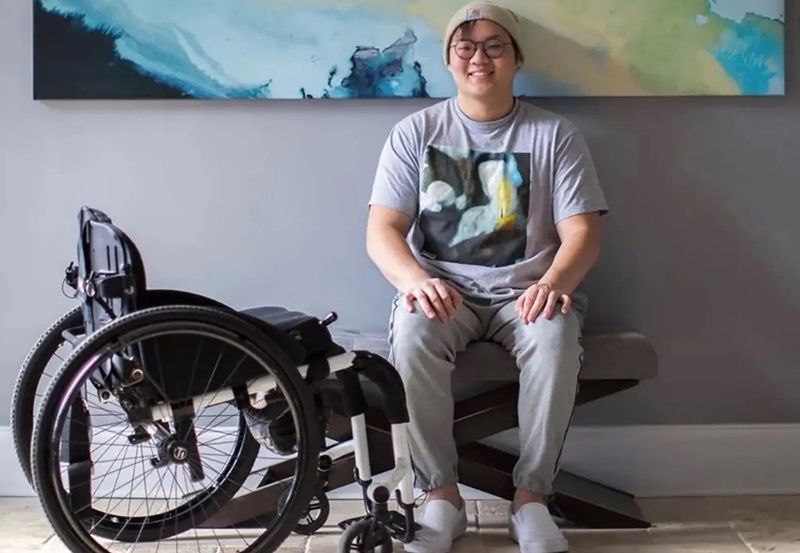Good morning! It’s Tuesday, January 2, 2024. Happy New Year!
Welcome to Katchup Briefing, the Korea Daily’s weekly English newsletter, where I’ll keep you informed with the latest news updates and perspectives from the Korean-American community. If you want to explore more articles and columns from previous weeks, please visit koreadailyus.com.

In a disturbing incident, Sean Chang, a 26-year-old Korean-American paraplegic, was compelled to crawl to his seat on a Delta Air Lines flight two months ago. This distressing situation underscores the urgent need for change in how airlines assist passengers with disabilities.
Chang’s ordeal unfolded at 8:45 a.m. on November 3, 2023, at Hartsfield-Jackson Atlanta International Airport, en route to Los Angeles. Despite his disability, Delta failed to provide the necessary assistance, leading to a deeply humiliating experience for Chang. He had not eaten for 24 hours to avoid using the in-flight restroom, which only exacerbated his difficulties.
Delta’s response, implying that Chang refused an alternative flight, overlooks the main issue: the absence of immediate and suitable aid for a disabled passenger. Chang disputes Delta’s narrative, highlighting the uncertainty and inconvenience he endured, including an extended security check.
Regrettably, similar stories are emerging, shedding light on the broader challenges faced by travelers with disabilities. For example, Rodney and Deanna Hodgins had a distressing experience on an Air Canada flight from Vancouver to Las Vegas in August last year. Rodney, 46, who has spastic cerebral palsy, reported a lack of assistance from airline staff, forcing him to crawl to the exit upon landing.
Another incident involved Natalie Curtis on a Jetstar flight from Singapore to Bangkok in 2022. Curtis faced the indignity of having to crawl to her seat because she was informed of an extra charge for using an onboard wheelchair—a service she had never been billed for previously.
These incidents collectively expose a significant issue in the airline industry: the failure to provide necessary assistance and facilities for passengers with disabilities. Laws like the Americans with Disabilities Act (ADA) and international guidelines mandate accessible travel for everyone, but these accounts reveal a troubling disconnect between policy and practice.
This is not an issue isolated to one airline or flight; it’s a loud wake-up call for the entire industry. The ADA and Section 504 of the Rehabilitation Act of 1973 demand accessible and dignified treatment for passengers with disabilities, yet Chang’s experience indicates a glaring gap in compliance.
U.S. Secretary of Transportation Pete Buttigieg’s consideration of new rules to reduce such incidents is promising. However, immediate and more substantive measures are essential. Airlines need to improve staff training for accommodating disabled passengers and ensure the availability of essential equipment like aisle chairs. They must also enhance communication and procedures for assisting passengers with disabilities.
Chang’s ordeal is a reflection of a broader societal issue of discrimination against individuals with disabilities. His resolve to highlight this injustice reminds us of our collective responsibility to ensure equality and dignity for all travelers, regardless of their physical abilities.
Let Chang’s story be the impetus for change. Airlines must not only adhere to legal requirements but also embrace a spirit of inclusivity and respect. It’s time for the airline industry to raise its standards and practices, ensuring a safe, dignified, and accessible travel experience for all passengers, especially those with disabilities. We must act decisively and not wait for another incident like Chang’s to prompt change.
By Mooyoung Lee lee.mooyoung@koreadaily.com




